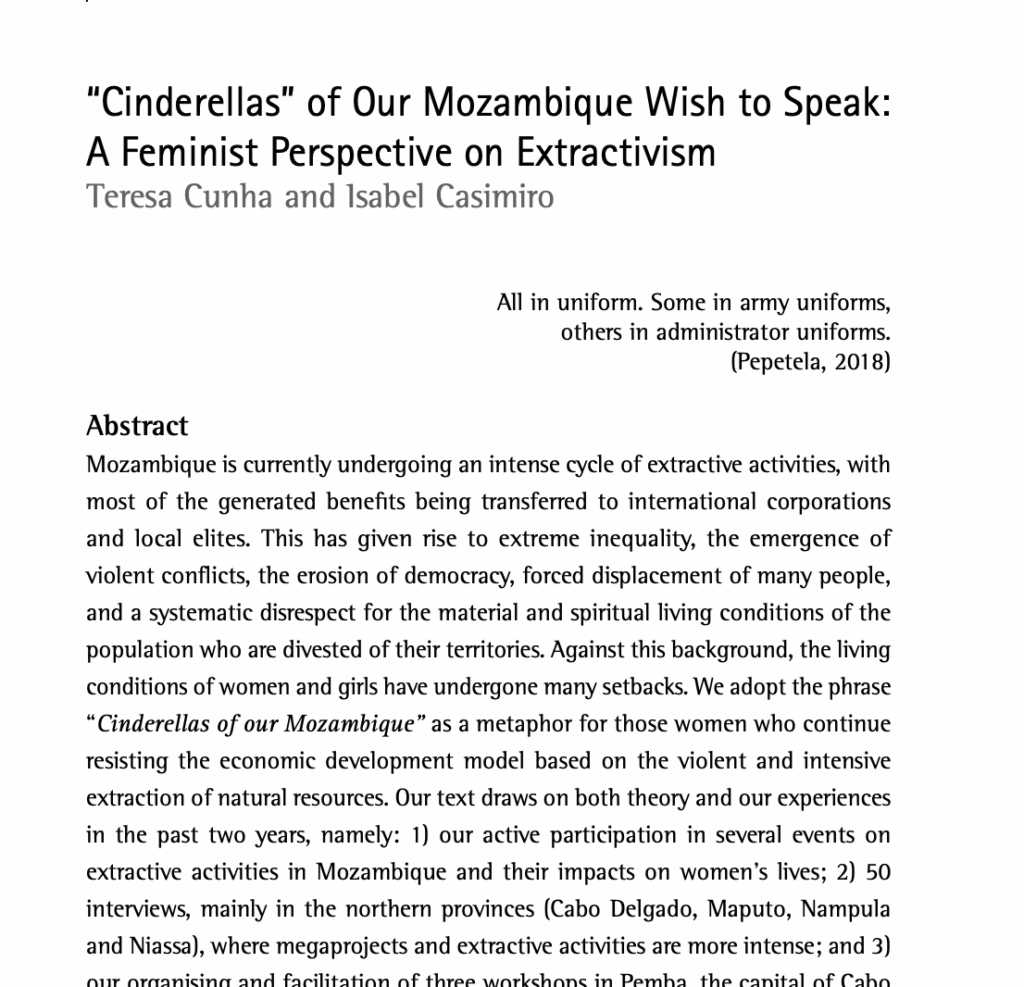Mozambique is currently undergoing an intense cycle of extractive activities, with most of the generated benefits being transferred to international corporations and local elites. This has given rise to extreme inequality, the emergence of violent conflicts, the erosion of democracy, forced displacement of many people, and a systematic disrespect for the material and spiritual living conditions of the population who are divested of their territories. Against this background, the living conditions of women and girls have undergone many setbacks. We adopt the phrase “Cinderellas of our Mozambique” as a metaphor for those women who continue resisting the economic development model based on the violent and intensive extraction of natural resources. Our text draws on both theory and our experiences in the past two years, namely: 1) our active participation in several events on extractive activities in Mozambique and their impacts on women’s lives; 2) 50 interviews, mainly in the northern provinces (Cabo Delgado, Maputo, Nampula and Niassa), where megaprojects and extractive activities are more intense; and 3) our organising and facilitation of three workshops in Pemba, the capital of Cabo Delgado province. Our paper is structured in two principal sections. In the first, we discuss and analyse the contemporary political economy of Mozambique as a southern African country. In the second section, based on our own experience and the narratives and practices of Mozambican women, we identify some of the possible causes of suffering and some of the ideas of resistance and future alternatives led by women and their communities.

